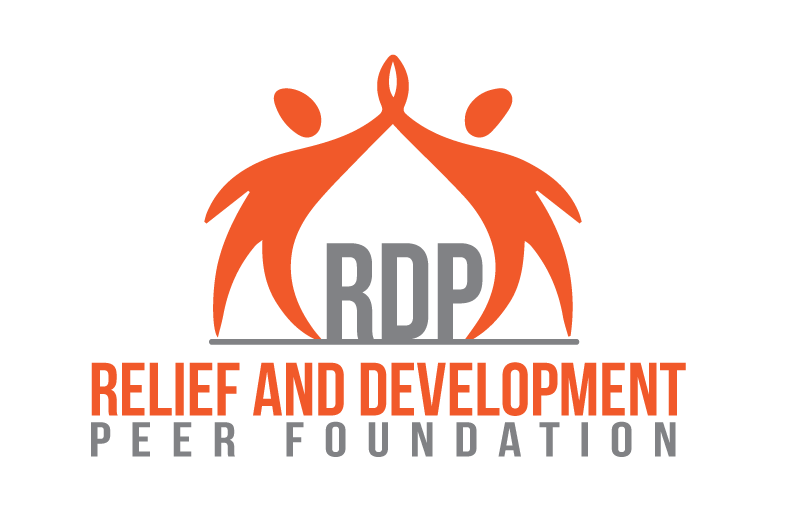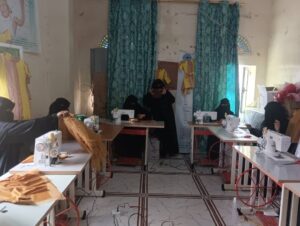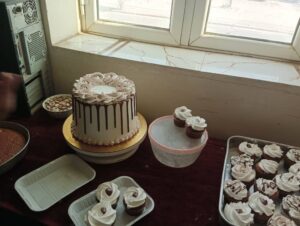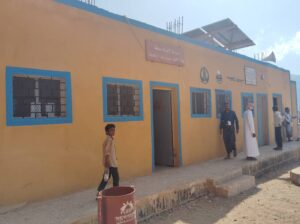The Fountain of Salvation
By implementing sustainable interventions that best meet the needs of people, we can see a community thrive for years to come.
Even with livestock and bumper crops, people continue to fight for survival. Khayran Al Muharraq is considered to be one of the poorest districts in Hajjah Governorate as it has become a conflict-affected area with a massive number of IDPs and affected host communities.
In this district, hundreds of U5 children have severe acute malnutrition, a huge number of people have contracted cholera as a result of environmental pollutants, most of its boreholes are contaminated, access to drinking water and food rations is insufficient, and most importantly main roads are difficult to be accessed by aid workers which has prevented a large number of vulnerable families to get the support they need to sustain their lives.
“I would like to inform you that our community has never seen better days other than a perpetual struggle to make ends meet. Our children are the ones taking the risk to fetch water from miles away since we do not have access to clean drinking water.
It saddens me to tell you that the majority of people here are used to fetching floodwater – resulted by the extreme flooding. Unfortunately, our boreholes, which we all depend on as a main source of water, are even contaminated.” Mouneer Khamisi added.
Measuring the humanitarian context and vulnerability levels, Relief and Development Peer Foundation (RDP) has therefore implemented the integrated emergency response project – supported by Yemen Humanitarian Fund (YHF) – to respond to the needs and improve the living conditions of most vulnerable households through livelihood and water, sanitation and hygiene interventions in Khayran Al Muharraq district of Hajjah Governorate.

After conducting the feasibility study on water resources and doing water scheme surveillance to measure the quality of wells and compare them with the high standards of potable water, Relief and Development Peer Foundation has decided to rehabilitate Al Makhlota water well. Al Makhlota well is one of the most appropriate wells at the level of the neighboring villages in terms of targeting. Its importance lies in the fact that it is the most well-flowing and cleanest water well with a strategic location comparing to other wells.
As a result, RDP has succeeded in providing safe, adequate and clean drinking water to thousands of vulnerable people through the rehabilitation of Al Makhlota water well by installing submersible pump and motor to push the water from the well into the main water tank, constructing 50 cubic meters of the main water tank, building eight water distribution points to ensure longer sustainability, installing 2 km of pumping and distribution networks and 18 kw of solar panel system. The project is by all means a real success as it serves nearly 7,500 beneficiaries from different vulnerable groups in Gharbi Al Khamisayn sub district, Khairan Al Muharraq district of Hajjah Governorate.

“My neighbors and I bring water trucks every four days with a total cost of five thousand riyals in case we have money. However, if we don’t have money, we use the donkey as a means of transportation to fetch water from furthest areas. It is very tiring and takes us a lot of time as we are displaced from Haradh area, which was destroyed by these successive conflicts that displaced thousands of families. And thus, we would like to express our appreciation to RDP for the exerting efforts to shorten the distance and provide clean water through these water distribution points.” Mohammed Abdullah Omar stated.
In addition to the rehabilitation of Al Makhlota well, RDP has implemented 100 HHs latrines and distributed 118 consumable hygiene kits to support families with SAM cases in 27 areas of Khairan Al Muharraq district. RDP community volunteers have also conducted 80 awareness sessions for 2643 individuals (895 men, 311 women,886 boys and 551 girls) on key hygiene, WASH related diseases, water treatment methods and health messages.



